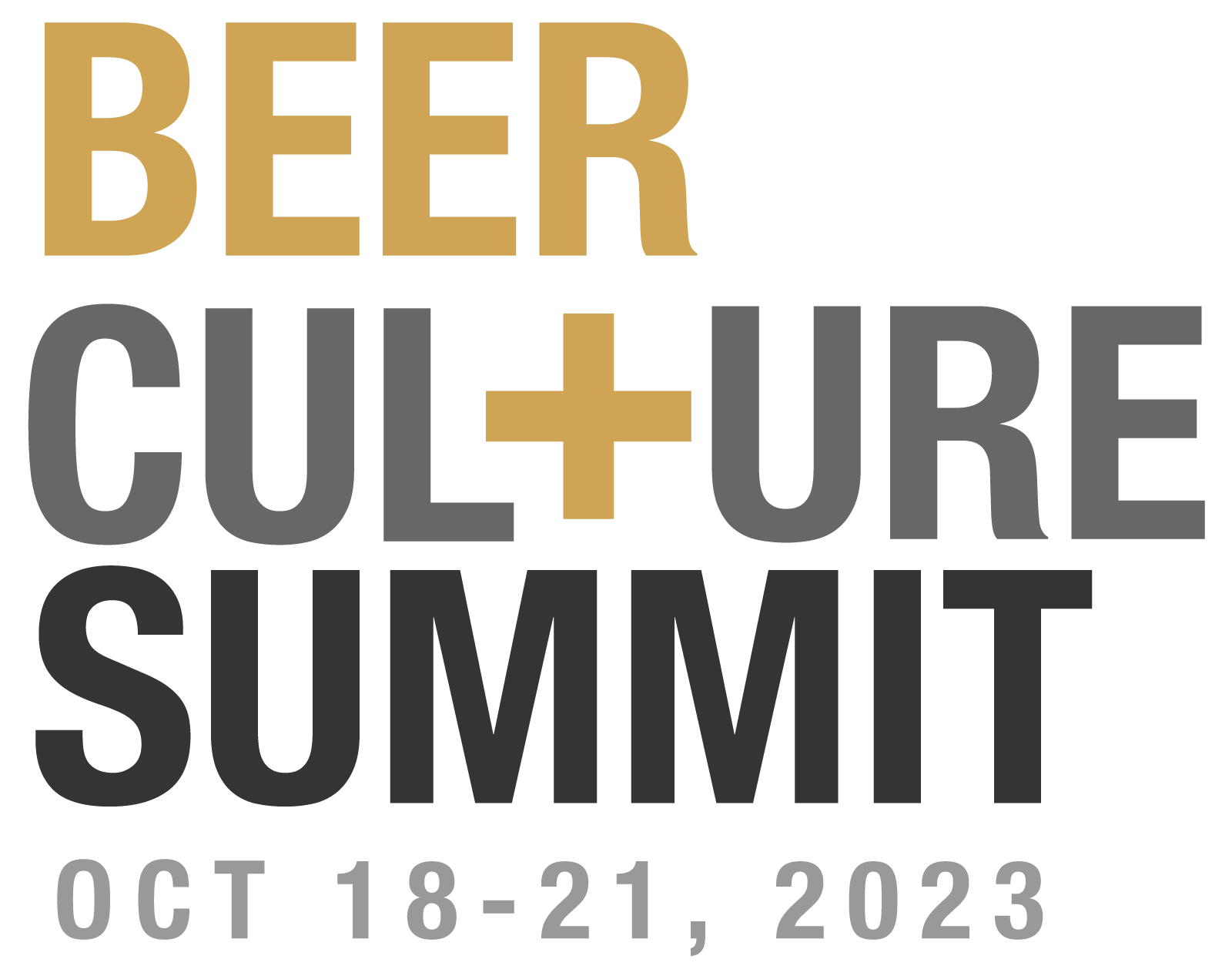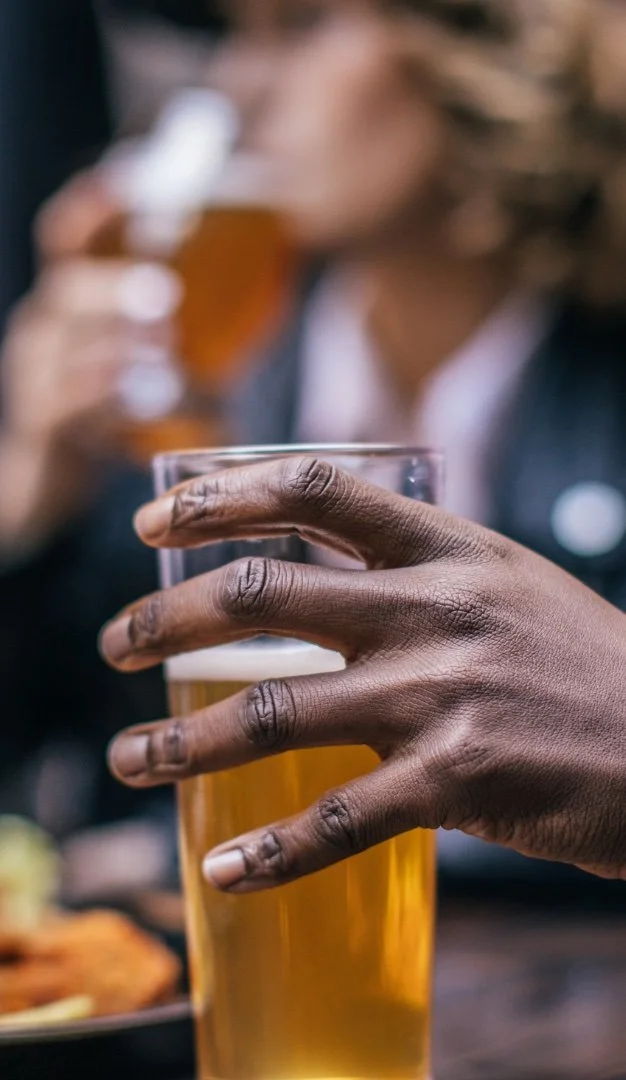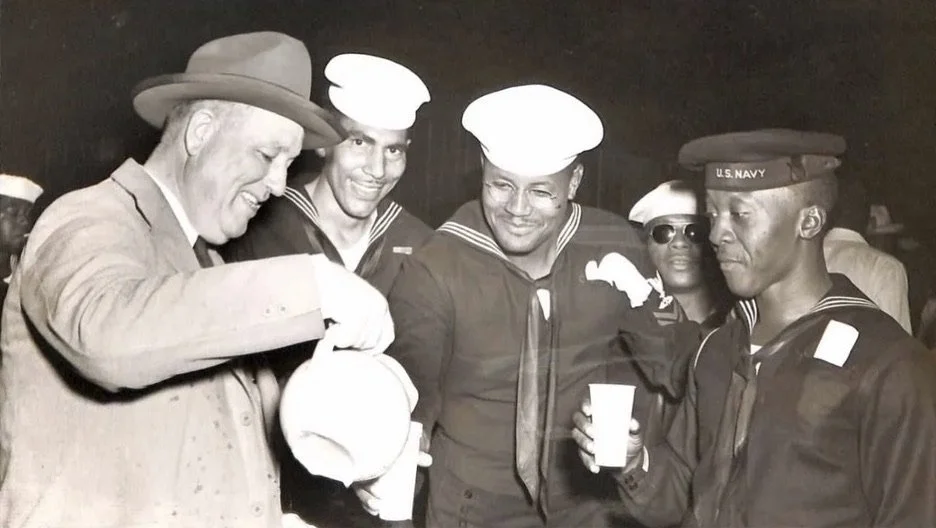
BEER CULTURE SUMMIT CONTENT ARCHIVE
Please join us for a memorable Closing Night of this year’s Beer Culture Summit and the very first major public event at the new Guinness Open Gate Brewery in Chicago.
The evening begins with a unique and fascinating lecture from Dr. Edward Slingerland who joins us from the East Coast via Zoom. The exciting night concludes with a very special announcement from the Chicago Brewseum.
$25 ticket includes lecture, two beers, small bites, a chance to explore new Guinness Open Gate Brewery Chicago, a very special announcement, and a darn good time! Lecture begins promptly at 6:30pm CST.
Big thank you to Guinness Open Gate Brewery for sponsoring this event and the entirety of the Beer Culture Summit.
Founded in 2017, Sesiones del Migrante is a unique beer collab and celebration of the Mexican migrant workers who travel to Yakima each year to harvest hops for breweries across the globe.
Initiated by Cervecería de Colima, Cerveza Loba, Ronin Fermentation Project, SouthNorte, Yakima Chief Hops, and Bale Breaker, Sesiones del Migrante is a project and beer aims to honor and recognize a pivotal underrepresented community in beer. And each year, proceeds from this beer go to local nonprofits who support the migrant farm working community in the Yakima Valley. The group also brews a series of the beer in Guadalajara, Mexic, Colima, Mexico, and Graeagle, California where a portion of the proceeds go to their local migrant communities.
In this session, the founders of the project will discuss the who, where, what, why, and how behind their project as well as the international and cultural impact it has made.
The beer industry faced a cataclysm when Brienne Allan asked the craft beer world, “What sexist comments have you experienced?” From there, a global reckoning led to hirings, firings, public callouts, cancellations, and—very often—silence or denial. Some changes ended up being temporary, others permanent, but what really changed since then?
This panel will feature people who were on the front lines of the biggest controversy craft beer has ever seen, as well as those who have kept up the discussion that started in May 2021. We’ll quickly review what happened, but focus on what’s happened since then and what we think could (and should) happen in the future, discussing more recent controversies such as the Bud Light and Dylan Mulvaney debacle. Is beer ever just beer? What are the risks of a brewery opting out of taking stances on politics, human rights, and equity? What were some long term benefits for the industry, as well as the emotional, financial, and mental costs? And once you’ve been “canceled,” is redemption ever possible?
Cask beer is a unique format of fresh, live draught beer that, at its best, delivers a taste experience unmatchable in any other way. Rarely found in the beer world at large, cask retains a significant commercial presence only in the UK, where it famously survived efforts by big brewery groups to phase it out in the 1960s and 1970s. Though in its home country it’s once again struggling to retain its profile, many brewers and drinkers remain fascinated with cask.
Cask is beset with myths and misunderstandings, a legacy of its emergence as a cause célèbre at the very birth of the beer consumer movement when technical and historical knowledge of beer and brewing was much sparser than it is today. More recently, it’s been overwhelmed by the sound and fury of the craft beer movement, dismissed by some younger UK enthusiasts as terminally obsolescent ‘boring brown bitter’, and now accounts for under 5% of overall UK beer production.
Today, unless people drink from the bottle or can, beer is almost exclusively consumed from glassware. Historically, in the farmer's culture, glasses were next to non-existent. Instead, the farmers had an astonishing array of drinking vessels. While the almost endless variations of these are fascinating in themselves, they are perhaps the most interesting for what they tell us about the drinking culture of earlier times.
Lars Marius Garshol explores the variety of farmhouse drinking vessels, their meaning, and their decorations which are also fascinating and informative, and even include a separate literary genre of beer bowl rhymes.
“We’re not in the business of making beer, we’re in the business of selling beer” is something often heard in the brewing industry. The marketing of American beer has proceeded in recognizable, parallel cycles: first notification that beer is available, then touting its quality, and finally placing the beer as an accessible and aspirational product. With variations, these cycles developed in the pre-Prohibition era, the post-Prohibition era, and the craft era. Beer has been advertised with science, with history, and with humor.
In this session, brewing historian Doug Hoverson will illustrate these cycles and discuss how beer advertising changed with other trends in society.
Ease into the morning in company of artist, Josh Moulton. Known for his style of photo-realism and urban landscape painting, Josh is drawn to architecture and its interaction with nature, as well as the effects that nature has on man-made objects.
Today, Josh treats us to a live demo as he paints an iconic Chicago drinking establishment, the Old Town Ale House. While he works, he will discuss approach, technique, reason, and there will also be commentary on the history of the bar. In the end he’ll produce a beautiful 18” x 24” acrylic on watercolor paper original piece of art.
Glass blowing, beer, and a bonfire? Yes, indeed!
Tonight we gather in the spirit of community. Enjoy some glass blowing demos, learn about the history of your favorite beer vessel shapes through time from Shana Solarte, or just hang out and enjoy some beer around a bonfire. Bring your own s'mores!
Firebird Community Arts, is a non-profit with a special initiative that offers teens and young adults who have been directly effected by gun violence a safe space to learn the art of glassblowing as a means to process and heal. We’ll also learn more about what they do from Artistic Director, Pearl Dick.
We're excited to partner with a wonderful organization making a serious impact.Please join us for a special evening celebrating beer, glass blowing, and community.
$25 ticket fee includes a chat, glass blowing demos, beer, and a darn good time. This event is 21+ only. High five to Metropolitan Brewing, Revolution Brewing, Conrad Seipp Brewing Company, and Athletic Brewing, for providing beverages for this event.
One-on-one glass blowing with an instructor will be available on a first come, first served basis. An additional fee for the private instruction will be paid directly to Firebird at time of lesson.
The National Black Brewers Association (“NB2A”) is a non-profit organization dedicated to creating a more inclusive and vibrant beer industry by providing Black brewers access to the resources, mentorships, and networks needed to thrive.
Join Kevin Asato, Executive Director of the NB2A, and members of its Board of Directors to learn about the association and its goals.
Scratch Brewing Company is a small farmhouse brewery located five miles from the Shawnee National Forest in southern Illinois. Named one of the top four breweries for foraged beer by Outside Magazine, and one of the most beautiful places to drink beer in the world by All About Beer Magazine, Scratch Brewing Company focuses on farmhouse beers and other styles brewed with home grown and locally farmed and foraged ingredients. The brewery has an ever rotating selection of styles enhanced by the innovative addition of local ingredients, such as nettle, elderberry, ginger, dandelion, maple sap, hickory, lavender, juniper, and chanterelle mushrooms.
Earlier this year we traveled to Scratch to partake in a day of foraging and brewing with owners Marika Josephson and Aaron Kleidon and learn how they create beer that showcases the terroir of Southern Illinois. Today we invite you to join us for an insider’s look at Scratch Brewing.
A live Q&A will follow the screening of this mini documentary.
Beer’s once-skyrocketing trajectory has cooled in recent years, yielding market share to segments like spirits and hard seltzers. But breweries that proactively diversify not just their products, but their approach to craft can find fresh inspiration in other segments, including one small (but mighty) alternative: cider.
Though only a fraction of the size, American cider’s history, reputation, and current level of innovation rival American craft beer, and their ability to harness the power of storytelling manages to attract (and keep) new drinkers every day at the same time that beer is shedding them. In this presentation, author and journalist Beth Demmon will compare the two segments in both past and present, finding similarities (and differences) between the two, which will provide insight into how craft beer can look to cider for inspiration. Likewise, we’ll also explore the ways craft cider has used beer touchpoints to continue to grow, leading up to a look at the future for both industries.
Imperialism and beer went hand in hand – the former helped its spread; the latter became a status symbol, a powerful economic and socio-cultural force of colonialism. Thus, beer has played a central role in the cultural, economic, and political development of empire and nation. However, while beer often lead to economic and cultural empowerment for the white elite, it became both, a tool of inclusion and exclusion via alcohol policies and ideas of racial chauvinism.
The spread of European empires regardless of the imperial nations led to their reliance on beer and other alcohol for their continued existence through alcohol polices of inclusion and exclusion. European imperialism from Africa to Southeast Asia and beyond initially expanded through economic trade in alcohol and became a key tool of control by these powers. At the same time, colonized peoples also used beer and alcohol production and consumption as a sign of resistance against these same powers through clandestine breweries and distilleries as well as illegal consumption of European-produced libations.
This session aims to uncover the entanglements of beer and imperialism with (1) an overview of British beer imperialism, in general, followed by (2) an analysis of industrial brewing in Palestine which proceeded under the watchful eye of the mandate government. Although there was an emerging market in Palestine, colonialism and the dependence of Palestinian industries on the British hindered the progress of local beer industries in the first decade of the mandate. It was only in the late 1930s that a thriving indigenous brewing industry began to prosper, establishing business contacts, especially with Jewish entrepreneurs in Europe and the U.S. This will be followed by (3), a discussion of how the racial superiority of beer of indigenous, commonly asserted by European colonists, was reproduced by the Japanese in dealings with Korean and other local beverages. Nevertheless, during the occupation of the Philippines, Japanese requisitioned San Miguel for military personnel and left beer from a Dai Nippon subsidiary for the local population. These short presentations (ca. 5 minutes each) will serve as a conversation starter, followed by a moderated panel discussion (20-30 minutes) on pertinent research findings and methodologies which will then be opened to the audience.
Think there's nothing new left to be done in beer, no uncharted territory or novel trends? Think again. Beer is moving forward all the time, from advances in fermentation, grain manipulation, and hop products unlocking new worlds of flavor and aroma possibilities, to revolutionary methods for quality control and growing categories like non-alcoholic beer, to innovations in the sustainable methods this industry will need to survive--responsibly and with a positive impact--in coming years. Behind every new flavor you find in a beer or every new process that will help, for example, grain being grown in an eco-friendlier manner, there are scientists, academics, and researchers hard at work. They don't often get the same spotlight as brewers, but beer would flatline without them--they're the spark behind beer's forward-moving creativity and what makes that even possible, and they're the people who will help the beer industry sustain itself.
In this panel, we hear from three people directly working with or reporting on scientific advances in beer to dive further into this fascinating world behind the scenes.
Since 2021, Back Home Beer has infused the American beer scene with innovative flavors and unique influences. Founded by Zahra Tabatabai, a journalist-turned-homebrewer born to Iranian immigrants to the U.S, Back Home Beer offers memorable beers inspired by Iran and beyond: cured Turkish sumac gose brewed with tart cherries, lager with Persian blue salt, orange blossom IPA, and more.
Join Tabatabai and Theresa McCulla, curator at the Smithsonian’s National Museum of American History, for a conversation about Tabatabai’s unexpected path to beer and her business’s mission to empower women, support immigrants, and take care of their surrounding communities.
Have you ever noticed that most iconic films have a pivotal bar scene? Or that a neighborhood tavern makes frequent cameos in all the hit TV shows? From The Dark Knight to About Last Night, dozens of these classic scenes have taken place in Chicago’s favorite bars.
WBEZ’s Curious City and the Chicago Brewseum are teaming up to share stories and clips showcasing famed (and memorable!) bar scenes in pop culture, including several Chicago gems.
Purchase of ticket includes two Goose Island beers at the event. No additional beverages will be sold. Seating is first come, first served. For accessibility requests, please email events@wbez.org
This event is 21 and over.
Join journalists Kate Bernot (Good Beer Hunting, Craft Beer & Brewing) and Dave Infante (Fingers, VinePair) for a freewheeling conversation about Sapporo USA’s decision to shutter Anchor Brewing Co. in July 2023, after less than six years at the helm.
Expect discussion of their reporting on the company and its closure, a review of Anchor’s considerable legacy, and most importantly, an interrogation of why news of this one brewery’s demise inspired such an emotional outpouring from drinkers across the country and around the world.
If Anchor was more than a business, what is the responsibility of its customers? If breweries are part of our shared civic culture, should we assess their value in extra-economic terms? Why do we feel so weirdly about the end of Anchor’s era? Together in dialogue, Bernot and Infante will explore these themes and more.
In this presentation, Travis Rupp explores the presence of beer in the ancient Biblical world and examines the existence of alcohol in the Jewish Tanakh and Christian Old Testament. How beer was made and what raw materials were needed to brew beer in the Hebrew world will also be explored. What was once a thriving and accepted component of Semitic cultures was eventually damned by the Christian religious institution in the fourth century CE.
Rupp also examines early Christian tactics to demonize and establish beer as a mark of barbarity in the fourth century CE. However, the very institution who sought to damn beer would ultimately be responsible for its rise, acceptance, and perseverance in the fifth and sixth centuries CE.
Jamaal Lemon and Michael Stein bring forth a heady conversation on Charleston, South Carolina's Black history and culture. Connections to beer, beverages, and foods are addressed in a mashup of information from all of the articles Lemon and Stein have worked on, many of them written together, with the most recent Good Beer Hunting article --Come Hell or High Water-- garnering a James Beard Media Award in the foodways category. The foodways of the lowcountry are forever influenced by the Gullah Geechee community and its continuity with African traditions, this discussion will illuminate these cultures and customs.
First impressions make or break the experience. Breweries and hospitality spaces that do the bare minimum to include people with disabilities send a negative message to their patrons. Hear from a panel of accessibility experts and people in the beer industry with the lived experience of disabilities sharing their perspectives on how to go from mere compliance to excellence in accommodating and including people of varying abilities. Learn simple steps to build a better space — and a better world — on a budget.
Is beer, and its flavor, directly influenced by the brewer, their technique, the ingredients and the equipment they use? Or is the end result of the brewing process fundamentally deeper than that, allowing beers to showcase true sense of place based on both agricultural and environmental factors – or as it’s known in wine terminology terroir…
In a recent essay for Pellicle, the online magazine he co-owns and edits, writer Matthew Curtis posited that beer cannot possibly possess terroir. This resulted in several days of heated, but largely friendly discussion, about whether or not beer can indeed be greater than the sum of its parts. In this panel discussion, Matthew will host a panel of experts, including beer writer Stan Hieronymus, Chris Schooley of Troubadour Maltings in Fort Collins, Colorado, and Charlotte Cook, head brewer at London’s Coalition Brewing.
Can beer really possess terroir? Should we even be using a term that is so heavily entrenched within wine culture? Join us for what we expect to be a lively, open discussion that helps shed light on what has become one of 2023’s most heavily debated topics within beer.
Since 2017, the mission of the American Brewing History Initiative at the Smithsonian Institution’s National Museum of American History has been to document and collect the history of American beer, with an emphasis on the histories of microbrewed and craft beer. That mission was never clearer than when the news broke in mid-July 2023 of the impending liquidation of Anchor Brewing Co., the nation’s first microbrewer.
Join Theresa McCulla, curator of the American Brewing History Initiative, for a deep dive into her emergency collecting trip to Anchor Brewing Company days before the business’s liquidation. The artifacts, business records, and oral histories gathered there will serve researchers, curators, and the public long into the future.
BEER CULTURE SUMMIT OPENING NIGHT
On Saturday, November 19, 2022, Richard and Jessica Fierro, owners of Atrevida Beer Company in Colorado Springs, Colorado were with their family at Club Q, a local LGBTQ+ bar. A celebratory night soon turned into tragedy as a shooter began his hateful assault on the crowd. In a moment of selflessness, Richard Fierro apprehended and stopped the shooter, ultimately preventing more injuries and fatalities from happening. Richard’s valiant efforts soon made him a hero, but behind it all, their family suffered a tragic loss on top of the trauma they experienced in just a few short minutes.
Tonight, Richard and Jessica Fierro join us in Chicago for a conversation with Chicago Brewseum Executive Director, Liz Garibay. The trio will discuss the tragedy, the events that unfolded, and how identity, humanity, and the coming together of various communities have played a major role in their healing process. And they will demonstrate how beer is more than just a beverage.
This is the first time ever that Rich and Jess will discuss the events of November 19, 2022, in a live open forum to the public.
$25 ticket includes welcome beer and a post-reception with beer and hard seltzer and light bar snacks. Program begins promptly at 6:30pm. Open to all ages; must be 21+ to consume alcohol. Content warning: Discussion of gun violence and anti-LGBTQIA+ hate crimes.
This event is presented in in cooperation with the Chicago History Museum’s OUT at CHM programming. High five to Metropolitan Brewing, Revolution Brewing, Conrad Seipp Brewing Company, Athletic Brewing, and Molson Coors for providing beer for the evening. Thank you to Molson Coors for sponsoring the evening.

The Beer Culture Summit is our annual four day conference that embraces one very important aspect of our mission: that beer is more than a just a beverage. We acknowledge that it is a dynamic cultural force with the power to bring people together and the ability to influence change. Around the globe, an ever-growing community of researchers, professionals, and everyday beer enthusiasts strives to learn more about beer’s historic legacies and modern worth. The Summit aims to be the forum to bring them all to the table for a pint and a discussion.
See you next Fall for our 6th Annual Beer Culture Summit.























